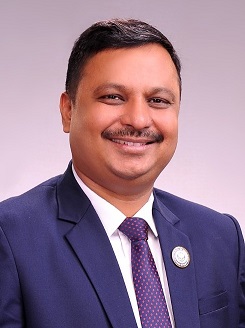Forensic Auditors Fear Court Cases, Seek (Indemnity)
For a senior partner working in the forensics division of a large professional services firm, travelling to another city twice a month for business was a norm, until when the purpose of some of the visits became attending court proceedings.
His firm was sued by the promoters of a bankrupt company, for a forensic report it submitted to lenders that showed how money was siphoned off from the company.
“It’s a godforsaken place and I wonder why I joined the profession,” this person said. He claims that his firm had spent more money on lawyers than what it charged the banks for the report.
Forensic Auditors are now seeking protection against such cases, as promoters and managements of companies facing allegations of fraud are increasingly bringing legal action against them for the findings in the reports.
“We have started seeking indemnity from banks when conducting forensic audits for diversion or siphoning of funds, to cover legal expenses of defending against frivolous litigation by promoters or managements to sidestep the forensic report, because the fees for such forensic audits do not cover such legal costs,” this partner said.
Forensic auditors, including Deloitte, KPMG, PwC and EY, have started seeking indemnity from banks and other lenders for any litigation against them by disgruntled promoters.
In a recent case, KPMG was sued by the promoters of the Srei Group after its forensic report indicted them.
In the last few months, some of these firms were dragged to court or on the receiving end of police complaints while they were investigating fraud allegations against promoters of bankrupt companies.
“Given the nature of our business, our reports tend to be sensitive and confidential and are carried out specifically for the use of our clients, with a pre-defined scope of work; therefore, also naturally meant to be used only by the intended client. As an accepted industry practice, our engagements are protected by indemnity against third party claims and any legal intervention or expert witness services (if required) are covered by a scope extension,” said Nikhil Bedi, partner and leader – Forensic, Financial Advisory, at Deloitte India.
Many partners in the large professional services firms are covered by insurance against such litigation. However, the insurance they claim is often insufficient and not that useful due to a large number of litigations lately, according to people in the know. Also, in many cases, junior executives who are not covered by any insurance too are dragged into the dispute.
In one of the cases, promoters of a company had filed a police complaint against forensic investigators for alleged harassment. The complaint named the firm and three-four of its executives.
“This trend of suing forensic auditors can have a chilling effect and unless the courts come down strongly on this trend, auditors will seek indemnity against such litigations. They are expressing their professional view. This should not expose them to litigation,” said Suhail Nathani, managing partner of law firm Economic Law Practice.
According to industry trackers, many firms have stopped participating in the bidding process for bank-mandated forensic assignments because of the legal risk.
“It doesn’t make sense, especially because in such a process the fees are capped and there is no way we can ask for indemnity,” said a partner at a large audit firm.
“There are three options for the auditors – build the cost of litigation into the quote, buy appropriate insurance and build the cost into the quote, or seek indemnity from the client. Of course, if the audit firm is at fault, they will be liable themselves,” said Nathani.
Investigators claim that for some of the partners and executives, a large part of the time is spent in litigation or attending to complaints.

